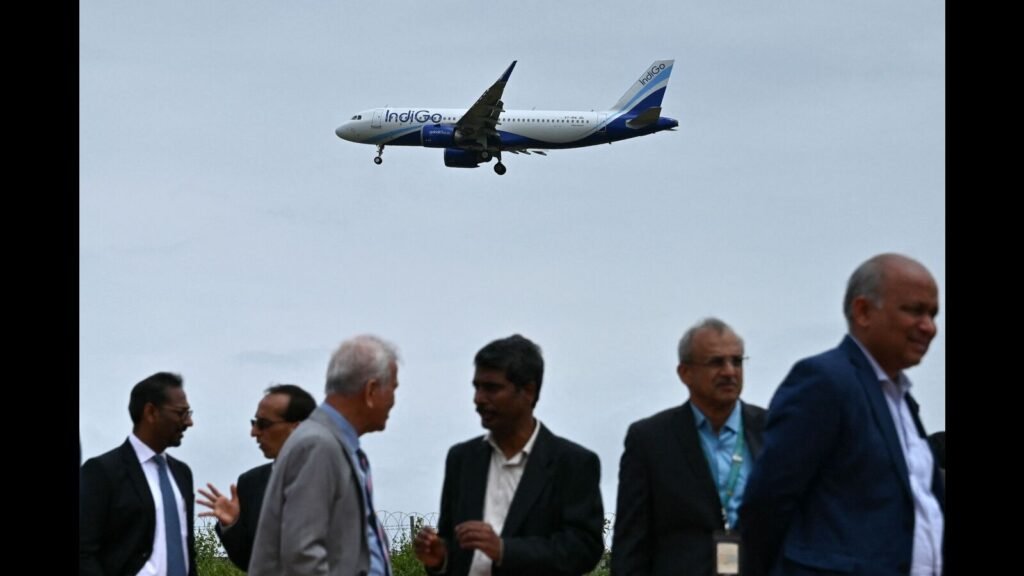
I shall begin this article with an incident that recently happened to me — a mini scam at the new Mopa airport in Goa this July as I was flying out with my daughter to Paris via Muscat. The woman manning the check-in counter informed us that the flight was so full that she couldn’t give us any two seats next to each other for the three-hour-odd flight to Muscat and that she could only assign us two middle seats . She said she could give us two emergency seats together for an extra payment of a bit over 3,500. Not liking the idea of two middle seats in a jam-packed aircraft, I agreed and paid.

Upon entering the aircraft, we saw rows and rows of empty seats and realized she had “scammed” us. Upon enquiry, I learned that the passenger load factor (PLF) on the flight was just below 50%. In fact, there were many three-seat rows that were empty. The scamster turned out to be an employee of Celebi, the ground management company that handles check-in and other tasks for a clutch of airlines, including Oman Air, that outsource these at various airports.
More recently, a friend mentioned how, for no fault of his, he twice had to waste time and energy to recover the cancellation charges that IndiGo, the largest private airline in India, levied on a ticket purchased online. Both times, the airline canceled the flight at the last minute and then deducted a small cancellation charge when it refunded the fare amount to him.
In fact, his argument was that it should be the other way round: The airline should pay him a “consolation charge” for canceling quite late in the day and forcing him to book on another flight, possibly at a higher fare.
A back of the envelope calculation by an industry expert estimated that IndiGo earns around ₹200 crore a month from cancellations, which accounts for around 40% of its ancillary revenues. In response to a query to confirm how much it nets monthly from such charges, the airline spokesperson said that “cancellation fee is a standard airline practice to encourage hygiene towards curbing wastage of seats, being a perishable commodity”.
Industry professionals point out an even bigger anomaly: The cancellation charge when the passenger wants to cancel. As things stand, in the majority of cases, the passenger stands to lose a substantial portion of the amount paid on booking, even if he or she cancels two months or more prior to the date of travel. This makes little sense since the airline also charges a sharp premium on last minute bookings.
If the passenger cancels well in advance, giving the airline plenty of notice and time to sell the seat, there is no reason why the airline should deduct such a hefty amount from the fare paid, especially since fliers pay through their nose for last minute bookings. .
Then, on October 6, 2023, IndiGo introduced a distance-based fuel surcharge on all passengers booking flights, claiming a significant increase in Aviation Turbine Fuel (ATF) prices and the need for “fare adjustment to address such a cost surge”. On reading about this move, I asked IndiGo about it and other airlines, including Air India, Vistara and SpiceJet, if they had introduced a similar fuel surcharge. I found that IndiGo had taken the lead and SpiceJet had followed, but the other players had refrained from imposing any surcharge.
When I asked some officials in the ministry of civil aviation (MoCA), they seemed unaware of the issue, and questions to IndiGo on the logic behind the move did not elicit any response. On January 4, 2024, IndiGo, of its own volition, removed the surcharge. Was this levy or fuel surcharge justified? If so, was the amount of the levy justified? Was it just a tactic to earn some extra revenue from ignorant fliers?
There’s no shortage of fog-related horror stories emanating from the National Capital Region (NCR) annually, but the ordeal faced by a friend and her daughter stayed with me. The duo’s five-night holiday to Sri Lanka was effectively cut short by one day since their Air India flight was delayed by over 12 hours; so, one night of the five was spent on the floor of Delhi’s Terminal 3. The airline provided some breakfast but little else. Till the boarding took place, passengers were kept in the dark, given virtually no information, and left to their own devices.
Such unpleasant stories of the suffering of fliers abound on all platforms, so I don’t need to elaborate.
My short point is: In a country where the number of fliers is growing by the day and the choice of airlines shrinking by the year, we urgently need an empowered body or ombudsman that can exclusively safeguard passenger interests on a daily basis.
The Directorate General of Civil Aviation, MoCA, and the department of consumer affairs are neither equipped nor designed to tackle this.
Anjuli Bhargava writes on governance, infrastructure and the social sector.The views expressed are personal





